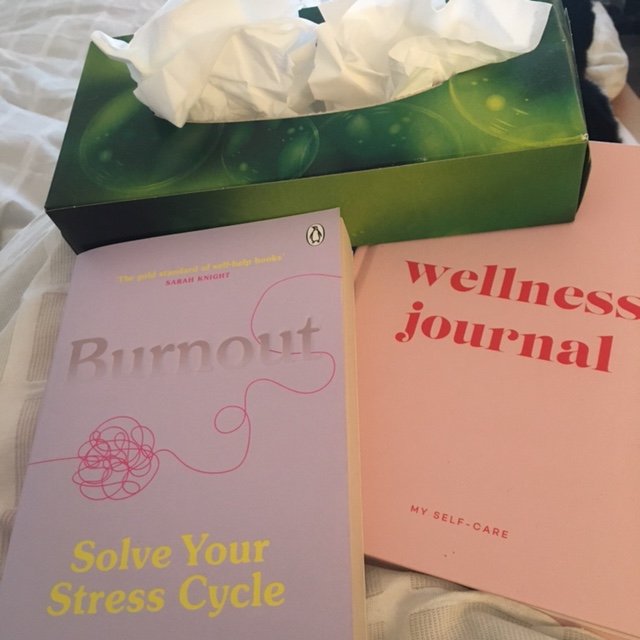How to get through work when you hate your job
I remember those feelings so well. The Sunday evening dread. The knot in my stomach when another full working week was looming ahead. And then there was the morning commute to get through as well…
It can feel so frustrating when you’re desperate to move on but your current job is already very demanding and takes up all your energy. Discovering a new career path can take time, so it’s important to find ways to make your current day to day work more bearable in the short term.
Here are the things I wish I’d known when I was going through this phase of my own career change:
Tip 1:
Set some healthy boundaries. Are you feeling overwhelmed or burnt out? Then reclaim your time and energy. Are you working long hours? Are you saying yes to endless additional tasks and projects on top of your existing work load? Then review your case load with your manager. Start saying no to extra assignments. Delegate where possible. And leave work or close your computer on time at least one night a week. Then build up to two, then three… Start putting your needs first and see how much more energised you feel.
Tip 2:
Find an ally. It could be a trusted colleague. Or a friend who has been through something similar. Or a coach or therapist. Having someone to unload your worries to can really help you get through a stressful time and prevent it building up and coming out in destructive ways at work!
Tip 3:
Practice gratitude. Try to remember the good things about your job. Imagine that someone was applying for your role and you had to write a job description for them. Think about the 3 best things about it and write them down. Does it give you opportunities to learn new skills? Be creative? Does it offer variety? A chance to meet new people? To mentor younger or new staff members of staff? Cultivating a sense of gratitude and appreciation has been studied in universities and found to be associated with increased life satisfaction, increased happiness and more positive emotions.
Tip 4:
Try re-ordering your work tasks. Think about the tasks you do in your job day to day and see if you can change when you do them. Either do your favourite tasks first and start the day on a high, or leave them until the end of the day as a reward. It’s a simple trick but very effective.
Tip 5:
Our work relationships meet an important emotional need in us, so try to prioritise time with colleagues who you enjoy working with most. In the age of virtual working, it’s not always easy to arrange face to face time these days. However where possible arrange in person meetings with them, or a lunch date, or if you’re in the office then actually get up and walk over to their desks when you need to talk them. And the colleagues who you don’t get on so well with? Try and limit your stressful interactions by communicating more often by email or text rather than face to face.
Tip 6:
Make the most of any training or upskilling opportunities. This could be a perfect time to focus on any gaps in your skillset or deepening your expertise in a particular area. If your current employer offers training or courses then absolutely make the most of it. It’s beneficial for all parties because it will make you better at your current job as well as making your more attractive to future employers. If there aren’t any training opportunities at work, consider signing up for an evening class or an online class which help you feel more motivated and fulfilled in the short term.
So give those tips a try and see if they help to change the way you view your current job. I’d love to hear how you get on so comment below and let me know!
Time for a career spring clean? 🌱
Spring is here and a time for new beginnings. So has this got you thinking about dusting off your CV and taking on a new project, going for that promotion, or even considering doing something entirely new?
If so, then a career coach is in the perfect position to help you make those decisions (well I would say that wouldn’t I?). But how do you know if hiring a 1:1 coach is the right option for you? And if so, how do you go about finding the perfect one when there are so many coaches out there?
Well I’ve written this little two part guide to help you figure it all out. In part one, I’ll share my tips for deciding if 1:1 coaching is right for you and in part two, how to choose the right career coach. So here we go...
Part 1: Do I need 1:1 coaching? Ask yourself the following questions:
1. Do you prefer an experience that is tailored to you and your specific needs?
Perhaps in the past you’ve done a course or read a book and you loved some of the material but not all of it was relevant to you. Or perhaps you’ve been in a group or a class situation where you learned some general information on the topic but felt like you didn’t get quite enough attention from the tutor or the coach about your particular issues. If you recognise either of these situations, then it could be a sign that working 1:1 with someone is what you really need, because the whole experience is then tailored to your needs and you won’t waste any more time. It can be a great option if you want to see results FAST!
2. Would you benefit from some extra accountability?
Do you need someone who is going to guide you through that a process of change? This doesn’t mean that they do the work for you of course, but do you want someone who can encourage you, support you and also gently challenge you when you need it? When you work with a 1:1 coach, you book regular sessions to check in with them and often you can also email them in between if you have any extra questions or need some encouragement. This additional accountability can make a huge difference towards achieving your goals.
3. Do you want a clear and personalised action plan?
This is the sort of plan which shows you exactly what your personal version of success looks like and the steps you need to take to get there. With 1:1 coaching, you usually come away from each session with specific action steps or reflection points, so that you know exactly what you need to go and do or think about next. Are you the kind of person this would appeal to?
Ok so I hope those questions helped to clarify your thoughts, and in part 2 of this ‘Spring clean your career’ mini guide with some additional tips for helping you choose the right career coach.
How to discover your superpowers
Are you feeling stuck in your life or career, but have no idea how to get yourself out of that rut?
Well one of the most helpful things you can do for yourself is to identify your strengths. Everyone has their own personal set of strengths that they can call on to help them achieve their goals and overcome any challenges.
It’s like having your own unique ‘superpowers’ that allow you to perform at your best and therefore feel more confident about what you have to offer the world.
Identifying mine was one of the most helpful things that I did when I was stuck in my last corporate job and my confidence levels were low. I had completely lost sight of what I really loved to do, after years of trying to fit myself into job roles that weren’t right and having to develop skills that were required but that I had no passion for (mastering excel spreadsheets anyone?).
However, doing the following exercise helped me get clear again on what I was good at and use that as a guide to figure out what my dream life and career could look like:
Notice what you enjoy.
Start to make a note each day of the things you love doing the most. What comes easily to you? What do you feel motivated and energised to do?
In positive psychology, this is called ‘being in flow’ and it’s how you can identify when your individual strengths and talents are being fully engaged. Here are some additional questions you can ask yourself:
What were you good at as a child?
What skills have you learned quickly and easily?
What attracts your attention and curiosity?
When are you completely absorbed and lose track of time?
What subject could you talk about for hours on end?
When time flies without you noticing, that’s when you’re in flow. Start to make a deliberate effort to have more flow experiences on a regular basis, whether that’s at work or at home, and notice your energy and happiness levels start to rise.













